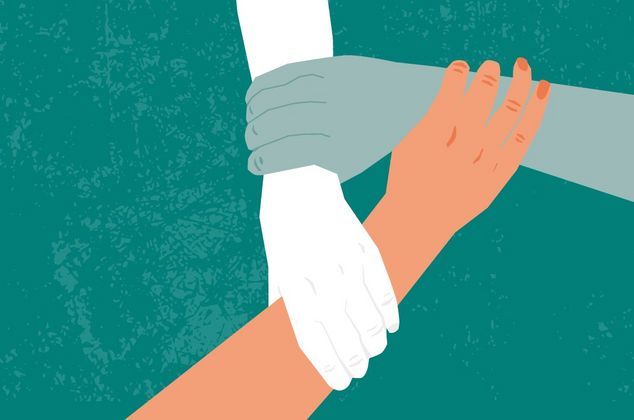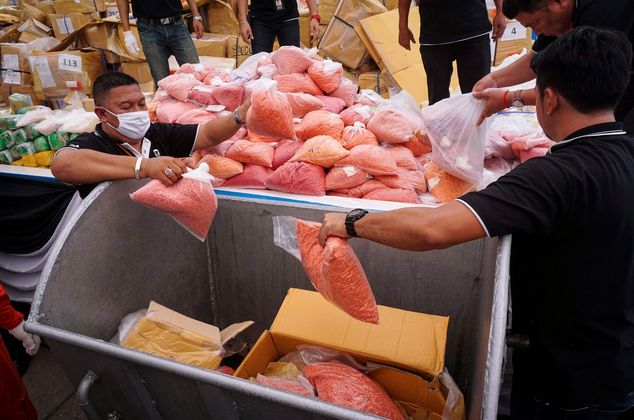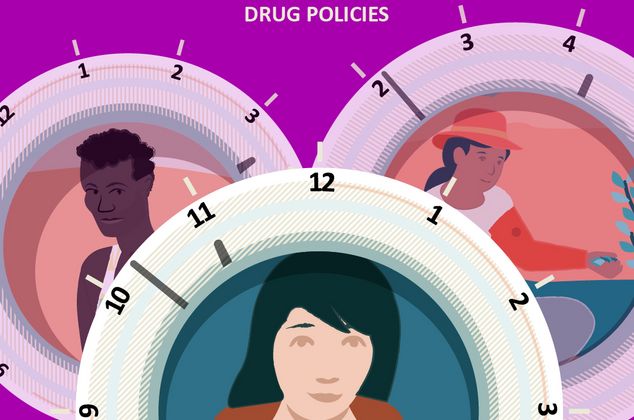Human rights and drug policy
Why upholding human rights is indispensable for a sustainable drug policy
Serious human rights violations are common in the fight against illegal drugs: torture, years of imprisonment without trial and death sentences for suspected drug users or micro-dealers, denial of basic medical care, extrajudicial killings – to name but a few. Even though safeguarding human rights is a basic prerequisite for development.
Only a fraction of all people using drugs worldwide has access to appropriate treatment, Harm Reduction measures, and protection against HIV and hepatitis infections. Although the death penalty for drug-related offences contravenes international human rights norms, it is still part of the legal order in place in at least 35 countries.
Human rights, a collateral damage
Even strategies to combat illicit drug crop cultivation can result in human rights violations. If the state destroys the only livelihood of poverty-stricken families, they face destitution. Moreover, drug crops are often eradicated by using chemicals that damage people and the environment. These measures then have the effect of denying the affected individuals basic rights such as the right to food, clean water and health.
No sustainable development without human rights
But since human rights are the very foundation of a dignified life, with equal rights, as well as the pillar of a free and open society and the basis for sustainable development, they are the fundamental requirement for Germany’s development policy. This also applies to the development-oriented drug policy advocated by Germany at international level. The United Nations call on the Member States to ensure that efforts to control drugs are ‘in full conformity’ with internationally agreed human rights principles. The Outcome Document of the 2016 United Nations General Assembly Special Session on the World Drug Problem (UNGASS 2016) dedicated an entire chapter to human rights in drug policy for the first time. It thus points the way to a drug policy that focuses more on individual rights and needs.
Alternative development strengthens human rights
The development-oriented drug policy, which embraces economic alternatives from the outset, as advocated by the Federal Ministry for Economic Cooperation and Development (BMZ), gives people long-term prospects of a better future. The aim is to help farmers in illicit drug crop cultivation areas to leave poverty behind and enable them to attain an appropriate standard of living through their own efforts. This includes an adequate and balanced alimentation, having access to land, health care and education. The close involvement of the local population and a special focus on strengthening the rights of women in rural areas are essential.
Long overdue: a body of rules and regulations
Governments often do not know how exactly they can align their drug policy with human rights. The International Guidelines on Human Rights and Drug Policy provide guidance in this area. The guidelines, drawn up by the University of Essex’s International Centre on Human Rights and Drug Policy, were developed with the support of the Global Partnership on Drug Policies and Development (GPDPD) on behalf of the BMZ, the United Nations Development Programme (UNDP) and the Swiss Federal Department of Foreign Affairs. The guidelines set out in detail drug control obligations on the basis of international human rights and are a novelty in international drug policy. In March 2019, they were presented to the United Nations Commission on Narcotic Drugs (CND) in Vienna. The human rights-based call for health, infrastructure and education programmes reinforces the BMZ approach, which goes beyond the cultivation of drug crops to focus primarily on their causes in Alternative Development projects.
Participation of all affected groups
Different stakeholders were involved in developing the guidelines: small-scale farmers, people who use drugs, legal experts, representatives of non-governmental organisations and of state and international organisations. In this way, different opinions and needs were taken into account, and the essential principles of participation, transparency and non-discrimination upheld. The guidelines are supported by four United Nations agencies: the Development Programme (UNDP), the World Health Organization (WHO), the Joint Programme for HIV/AIDS (UNAIDS) and the Office of the High Commissioner for Human Rights (OHCHR).
In order to make the guidelines known worldwide and to support interested states in transferring them into national laws and strategies, several regional consultations have already been held. The guidelines have been translated to Spanish, Russian and Portuguese. The UN Committee on Economic, Social and Cultural Rights has already taken up the guidelines, as has the UN Special Envoy for the Right to Health.
At the national level, too, the guidelines have already proven their benefits for several states: In 2020, the Colombian Constitutional Court resorted to the guidelines in a judgment on the destruction of coca plants with glyphosate in order to substantiate its negative position. In Albania, a first training with judges took place, in which the procedural rights were particularly in the foreground. In the future, even more tailor-made instruments and formats are to be developed with which the International Guidelines will become better known and their content clearer for users at all levels. Because the value of this human rights tool is measured by how much it is used and implemented.
You can view and download the International Guidelines on Human Rights and Drug Policy here.





